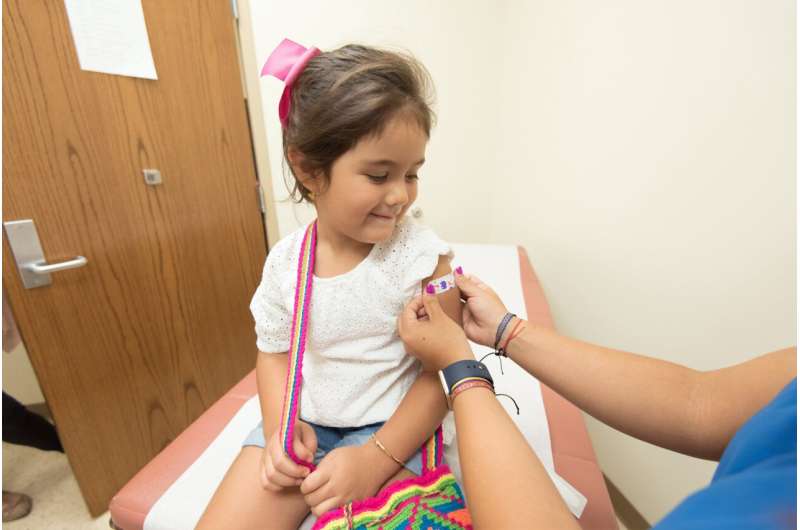High-Stakes Debate Over Vaccine Injury Compensation, Autism, and Public Trust

Debate intensifies over adding autism to vaccine injury compensation, risking program stability and public trust amidst scientific consensus dismissing vaccine-autism links.
The landscape of vaccine injury compensation is currently at the center of a heated debate that could have far-reaching implications for public health and trust in vaccines. Recently, Department of Health and Human Services Secretary Robert F. Kennedy Jr. proposed the addition of autism to the list of conditions covered by the Vaccine Injury Compensation Program (VICP). This program, established to provide a no-fault pathway for families suffering severe side effects from vaccines, faces a critical challenge: whether to expand its scope to include autism, a move experts warn could jeopardize its financial stability.
The VICP functions by listing specific injuries presumed to be caused by vaccines if symptoms develop within certain time frames, simplifying the claims process for families. Autism, however, has long been excluded from this list, as scientific consensus firmly rejects any causal link between vaccines and autism. Kennedy’s suggestion involves broadening the definitions of two serious brain conditions—encephalopathy and encephalitis—to include autism cases, potentially opening the floodgates to a significant rise in claims.
Legal experts emphasize that such an expansion would confront the legal requirement for notice and comment rulemaking, making the process complex and controversial. Critics warn that adding autism to the injury table might lead to an overwhelming number of claims, possibly draining the program’s financial resources—estimated at over $4 billion—and causing delays in justice for legitimate claims. The program, which has so far adjudicated over 25,000 petitions, could face a backlog that stalls payouts and undermines its integrity.
Historically, the creation of the VICP in 1986 was a response to a crisis fueled by lawsuits against vaccine manufacturers, who faced billions in claims. To stabilize vaccine supply, the government established a system where families could receive compensation if their injury appeared on the injury table, thus removing the need to prove causation. Over time, the table became a legal rather than purely scientific document—aimed at fairness and broader coverage, even if causation evidence was weak.
Western legal and scientific consensus remains clear: extensive research shows no causal relationship between vaccines and autism. Notably, the Omnibus Autism Proceedings concluded in 2010, dismissing claims that vaccines cause autism. Nevertheless, the debate persists, partly fueled by past controversial cases such as the Hannah Poling case in 2008, which involved a child with a rare mitochondrial disorder showing autism-like symptoms after vaccination. Although officials clarified that her case was specific, it added to public confusion.
Current evidence indicates that autism begins prior to birth, during fetal development, and is primarily driven by genetic and environmental factors, not vaccines. Leading experts like Peter Hotez and Catherine Lord emphasize that vaccines are safe and that the real dangers lie in vaccine-preventable diseases such as measles, mumps, and rubella, which have historically caused severe illness, disability, and death.
However, opposition groups and some advocacy efforts continue to challenge the scientific consensus, arguing that the risks of vaccines are underrated and that vaccine injuries are under-reported. Some campaigns actively distribute materials questioning vaccine safety, which can influence public perception.
The potential expansion of the VICP to include autism raises concerns not only about financial sustainability but also about public trust. Critics warn that it could send mixed messages, suggesting that vaccines might be linked to autism, despite overwhelming evidence to the contrary. This could fuel vaccine hesitancy and undermine decades of progress in immunization programs.
Moreover, the debate highlights the delicate balance between providing compensation and maintaining scientific integrity. While families of children with autism deserve support, experts argue that expanding the program’s scope to cover conditions with no proven link to vaccines could be a costly and politically motivated distraction.
Moving forward, any decision to alter the injury table will involve extensive regulatory processes, public consultation, and potential legal challenges. The outcome will significantly influence the future of vaccine policy, public confidence, and the global effort to prevent infectious diseases.
This ongoing controversy underscores the importance of clear communication between health authorities, scientists, and the public to ensure that vaccine policies are both scientifically sound and socially responsible. As the debate continues, safeguarding the integrity of vaccine safety programs remains paramount to maintaining robust immunization efforts and public trust in health systems.
Stay Updated with Mia's Feed
Get the latest health & wellness insights delivered straight to your inbox.
Related Articles
Early Detection of Aging Signals in Liver Tissue Offers Potential for Disease Prediction
Innovative single-cell analysis technology enables early detection of tissue aging signals in the liver, improving disease prediction and personalized treatment strategies.
Kylie Jenner's Plastic Surgery: What She Reveresses and Expert Insights
Kylie Jenner and other Kardashians have openly shared their plastic surgeries, raising important questions about beauty standards, societal pressures, and health risks associated with cosmetic procedures.



